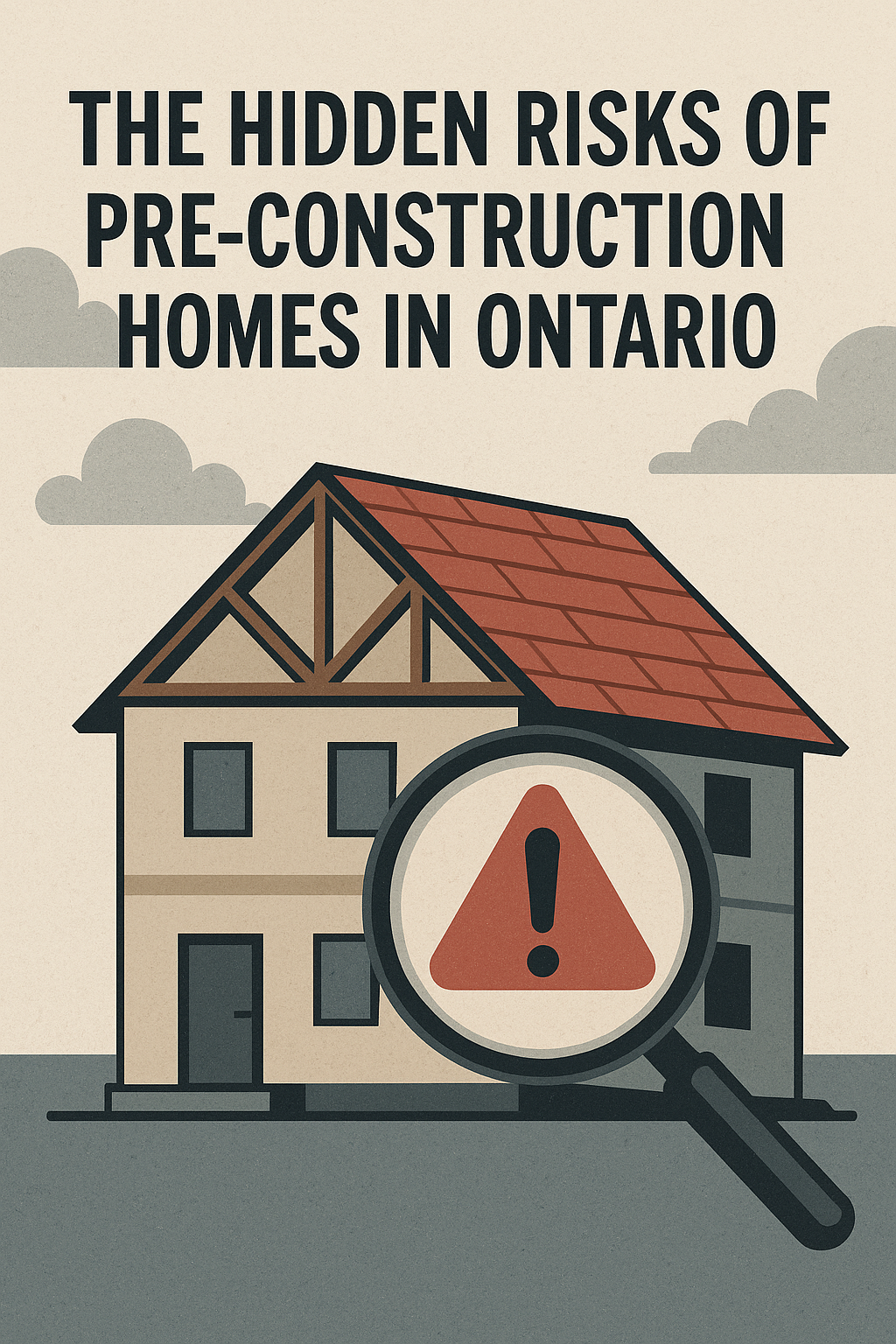Thinking About Buying Pre Construction in Toronto? Read This First.
The appeal of buying a pre construction home in Toronto, Ontario is undeniable — modern finishes, customization options, and the sense of getting in on the “ground floor” of a new development. But while glossy brochures and show suites highlight the potential, they often leave out the risks. Many buyers are caught off guard by the fine print, hidden costs, and construction delays that can turn their dream home into a financial and legal headache. Before you commit to a pre construction purchase, it’s crucial to understand the pitfalls that come with it.
Here’s what every buyer should know before signing on the dotted line:
________________________________________
1. Extended Delays & Uncertainty
• Developers often project completion within 1–3 years—but delays are common due to supply chain issues, labour shortages, permitting holdups or financing struggles.
• Buyers may face prolonged “interim occupancy” fees—sometimes lasting years—paying monthly charges without officially taking ownership or being able to sell.
2. Demanding Deposit Structure & Financial Risk
• Pre construction deals typically require hefty deposits—around 20%—which must be paid incrementally before mortgage approval.
• If you default, you risk forfeiting your deposit. Conversely, if the developer goes insolvent, your recovery might be limited to that deposit.
3. Premium Pricing with Risk of Negative Equity
• You’re effectively paying a “new-build premium,” sometimes at or above resale market rates—even before construction starts.
• A downturn in the market before project completion can leave you owing more than the home’s market value (negative equity).
4. Unexpected Additional Costs
• Beyond the purchase price, you’re on the hook for HST (plus rebate filing effort), closing levies, development charges and unexpected provincial or municipal fees totaling 1–4% of the sale price.
• Maintenance fees may start low but often climb 10–30% within a few years due to aging amenities and escalating common area costs.
5. Design Changes & Builder Flexibility
• Builders can alter plans—like changing layouts, reducing ceiling heights, omitting promised amenities—with limited recourse for buyers.
• While regulatory bodies like TARION oversee disputes, the onus is on buyers to identify issues and wait for fixes.
6. Limited Consumer Protections
• Legal agreements are often drafted heavily in favour of developers—with narrow definitions of what qualifies as “material change.”
• If changes are deemed immaterial, buyers may lack strong legal recourse.
________________________________________
👇 What Buyers Should Plan For
• Budget beyond the sticker price: include HST, closing levies, rising maintenance, and unexpected development charges.
• Vet your builder: research past projects, track records and financial standings.
• Read contracts thoroughly: watch for vague wording on design, occupancy, and amendments.
• Factor in delays: have backup housing or rental plans in case of extended timelines.
• Understand HST implications: new builds may include rebate calculations—but only after upfront payment.
________________________________________
While pre construction homes in Toronto or the surrounding regions promise brand new spaces and customization, they carry real risks: lengthy delays, hefty deposits, design changes, rising costs, and legal imbalance always tip the scale away from buyers. In many cases, a comparable resale property offers better predictability and fewer hidden pitfalls.
If you are thinking of purchasing a pre construction home in Toronto – have a lawyer read over the deal. This can usually be done with for a small fee, but it can save you thousands in the end.
Call Capulli Law LLP today at 647-504-6878. We are always happy to help.
